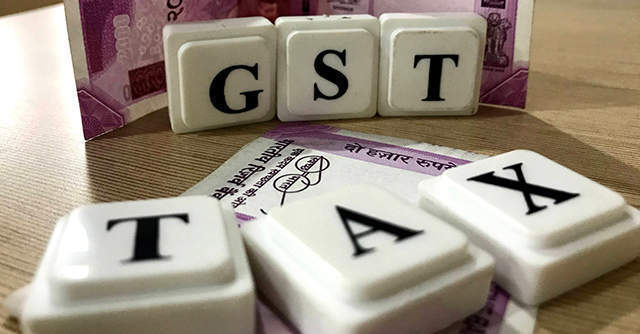
EV players seek GST rate cut on lithium batteries, attention on infra in Budget 2021


The mobility sector has received ample attention in the past two union Budgets, predominantly on the back of the government’s drive for a clean, aatmanirbhar India, under which it has aggressively promoted hybrid and electric vehicles (EVs).
Finance minister Nirmala Sitharaman, in Budget 2020, laid out Rs 1,70,000 crore for transport infrastructure investment and development under the National Infrastructure Plan (NIP). She also allocated Rs 22,000 crore in equity support to infrastructure finance companies such as India Infrastructure Finance Company (IIFCL) and a subsidiary of National Investment and Infrastructure Funds (NIIF).
In line with this drive there have also been comfortable EV boosts from time to time, most significant of which included FM cutting down the GST on EVs from 12% to 5% and tax relaxations of upto Rs 1.5 lakh on interest paid on EV loans in the 2019 Budget. Then there was FAME (Faster Adoption in Manufacturing of Hybrid and Electric vehicles), launched in April 2015, which concluded its first phase in 2019, disbursing a total Rs 895 crore towards the development and implementation of EVs and related infrastructure.

Despite the timely boosts, the EV community was left rather disappointed last year, as Budget 2020 didn’t add much to its EV promise. There were scarce EV allocations in the last Budget, in addition to almost doubling of BCD (Basic Custom Duty) on imports of EV components. Although the duty hike was hailed as a welcome initiative to promote local manufacturing, it still left a dent on overall EV production sentiments.
The startups, manufacturers and fleet operators in the EV space, for the February 1, 2021 Budget, eye a reduction of GST on lithium-ion batteries, which reportedly amounts to 40% of the EV’s manufacturing cost, attracts 18% GST. This, as expressed by many operators in the space, balances out the overall GST reduction on EVs. There are stronger demands for getting a reduction to 5%.
Another concern in the EV space is finance. Although there is a tax return benefit enlisted on EV loans, the community wants further assistance in terms of easy loan access through innovative bank products. The interests on EV loans reportedly stand at a hefty double in comparisons to those taken against ICE (internal combustion engine) vehicles.

A few EV fleet operators have also expressed resentment over having to pay an 18% GST on their service bills. They seek to get it down to 5%. A better clarification on FAME’s phase 2 implementation has also been on the wishlists of a few. FAME entered its second phase last year, announcing an outlay of Rs 10,000 crore for the next three years.
TechCircle interviewed a few mobility and EV startup operators and investors to understand their expectations from the upcoming Budget. Edited excerpts:
 Naveen Munjal, managing director of Hero Electric: The EV two-wheelers industry has been in continuous dialogue with the government to formulate a robust policy that will drive adoption of green mobility with the help of certain modifications in existing policies. As an industry, we have shared several recommendations that are extremely crucial for the next phase of growth. To begin with, amendments in the FAME II policy framework and extension of the PMP guidelines are needed to accelerate growth of the industry.
Naveen Munjal, managing director of Hero Electric: The EV two-wheelers industry has been in continuous dialogue with the government to formulate a robust policy that will drive adoption of green mobility with the help of certain modifications in existing policies. As an industry, we have shared several recommendations that are extremely crucial for the next phase of growth. To begin with, amendments in the FAME II policy framework and extension of the PMP guidelines are needed to accelerate growth of the industry.

The government should also include the EVs in the priority lending sector to provide customers with relief in procuring e-vehicles who are looking to start commercial operations. We have requested the government to reduce GST on EVs sold without battery to 5%. Reduction in the GST on battery swapping facilities offered by OEMs and replacement batteries from 18% to 5% is also needed. EVs should be included in the Swachh Bharat Mission under Clean Air campaign to create awareness among customers.
Also, including EVs under CSR activities will further encourage the industry. Currently, the government should look at front loading of the subsidies to get the first 2 million E2W on the road quickly and thereafter the subsidies could begin to taper off.”
Nishchal Chaudhary, founder and CEO of BattRE: We are expecting a GST reduction in lithium batteries from 18% to 5%. Also, if nationalised banks provide affordable loans for purchase of low-speed electric vehicles, it will speed up EV adoption in India.

Tarun Mehta, co-founder and CEO of Ather Energy: For manufacturers, one of the key challenges on investments in the sector is the concerns regarding GST inverted duty structure. In order to minimise working capital blockage, the government should look at extending end use based benefits to the EV industry, such as lowering GST rates on raw materials, allowing inverted duty refunds for research and development and capital expenditure. Especially for startups like ours in their growth phase, offsetting inputs on such major expenses without being GST profitable is a big challenge.
We also see a need for banking institutions to come up with innovative financial products for EV purchases. Further, startups in their growth phase suffer from lack of options on debt financing, thereby increasing finance cost burden. From an operational perspective, we are closely following the production-linked incentive (PLI) scheme and we look forward to more progressive schemes designed for OEMs.
 Shreyas Shibulal, founder and director of Micelio: One of the key expectations from Budget 2021 that we have is the enablement of charging infrastructure in the country at a faster rate. As India takes a leap at EV advancement, charging infrastructure along with mandating charging stations in malls, housing societies, and office complexes and public parking places are required and is the need of the hour.
Shreyas Shibulal, founder and director of Micelio: One of the key expectations from Budget 2021 that we have is the enablement of charging infrastructure in the country at a faster rate. As India takes a leap at EV advancement, charging infrastructure along with mandating charging stations in malls, housing societies, and office complexes and public parking places are required and is the need of the hour.

Also, recently, the central government has moved to extend the PLI scheme to the automobile sector, including for manufacturing of Advanced Chemistry Cells (ACC), which is commendable. While this will definitely give a boost to local manufacturing, the government must also look at aggravating the domestic demand by further incentivising individual and commercial consumption of EV pan India. Not only should the government incorporate an attractive financing option for electric vehicles, but also implement a faster roll-out of tax refunds and incentives. A smoother regulatory approval system will definitely boost the sector. We also hope that the Budget addresses the inclusion of retro fitment incentives in FAME II policy.
Apart from this, Budget 2021, should also focus on talent development for the EV sector. New initiatives should be introduced to enable and promote companies to invest in top universities and campuses across India. With the recent announcement of Tesla entering the Indian market and TATA motors introducing
their EV vehicle, young talent needs to be groomed to reduce India's reliance on other countries for material and technology imports.

Anand Ayyadurai, co-founder and CEO of VOGO: We are hoping to see a reduction in GST on EV batteries from 18 % to 5%. Along with this, subsidies on all electric vehicles including low-speed electric two-wheelers. This will not only support the manufacturers and service providers but will also reduce the overall cost of the vehicle for consumers.
Akash Gupta, founder and CEO of Zypp Electric: We expect the Budget to invest significantly towards the growth of the EV industry. We wish some schemes for easy EV vehicle financing and subsidies for EV fleet operators from this upcoming Budget, as 2021 should be the year of electric adoption in India. Further, we are also looking forward to the government’s decision to elevate the startup ecosystem.
Amit Raj Singh, co-founder and managing director of Gemopai: We hope that in this Budget, the government considers reducing the GST rate on lithium ion batteries. This would go a long way in providing a relief to the EV manufacturers in the country and effectively increase the adoption of EVs.
Rushi Shenghani, CEO and founder of Earth Energy EV: Hoping for a huge opportunity in the sector to get localised, we are keeping up our expectations high on this year's union Budget, which will certainly bring up advancement in the sector. To further support the localisation of battery production which accounts for around 40% of the EV development cost, the government can reduce the GST on batteries as well as import duty slabs. It presently incorporates the GST of 18% on lithium-ion batteries and 28 % on lead-acid batteries. The cost of an EV can come down significantly with the GST reduction. Also, the government should finalise its incentives-based scrappage policy which can help create demand in the commercial vehicles (CV) segment as well.
We request the government to also be liberal with Infrastructure spending and make charging stations mandatory in all the official and residential areas which will contribute to increasing penetration of EV across the country.
Jeetender Sharma, founder and managing director of Okinawa Autotech: We urge the finance minister to reconsider the current taxation framework applicable on raw material and the final product in case of EVs. While the GST input on raw material is 18%, the tax on outward supplies currently stands at 5%, leading to an implicit inverted duty structure for manufacturers. This move could help in optimising the cash flows. The government must also look at aggravating the domestic demand by further incentivising individual and commercial consumption of EV pan India.
We hope the Budget 2021 continues to invest heavily in road infrastructure and don't criticise automobiles for pollution because great road infrastructure will result in no pollution and no congestion on roads. In India, only 5% of Indian households have a car, and 25% of Indian households have 2-wheeler vs 60% of households with cars in developed economies.
-(2)-(3)-200.jpg) Sandeep Aggarwal, founder and CEO of Droom: The auto industry expects relief from the Union Budget 2021-22 in the areas like demonetisation and GST. Confusion around EV and BS-VI has really tempered automobile demand in the last several years. The government should aim to announce things in this Budget that can simplify the automobile industry including direct and indirect taxation. I really hope that the government makes enough rules so that inter-state transfer of vehicles has a very low entry barrier and digitisation of extremely important industry for the economy.
Sandeep Aggarwal, founder and CEO of Droom: The auto industry expects relief from the Union Budget 2021-22 in the areas like demonetisation and GST. Confusion around EV and BS-VI has really tempered automobile demand in the last several years. The government should aim to announce things in this Budget that can simplify the automobile industry including direct and indirect taxation. I really hope that the government makes enough rules so that inter-state transfer of vehicles has a very low entry barrier and digitisation of extremely important industry for the economy.
Amit Gupta, CEO and co-founder of Yulu: The government, and especially nationalised banks, can collectively work together to support startups and companies in the segment. Hence the government's consideration of loan guarantee schemes to encourage banks to lend to EV manufacturers and operators, with parity on lending terms would go a long way. The need of the hour is to promote mobility as a service using EVs. Infrastructure for ease of use of EV like charging kiosks and Non-Motorized Transport (NMT) lanes within 5 km of all current/future metro stations are key factors to boost the demand of EV usage. We also recommend that incentives must be given for purchasing ‘low speed’ EVs as this will enable the sustained provision of affordable and environment-friendly transportation options for the masses. We also urge standardizing lithium-ion batteries to promote swapping infrastructure. Further, we suggest rationalizing GST rate on critical components of an EV like the battery or propose schemes to boost local production of batteries.
Ruchit Agarwal, co-founder and CFO of CARS24: We are expecting some major reforms that will help sustain the pace of growth witnessed in the last three months in the auto industry- like reduction of GST rate and “One Nation, One Tax” policy. The approval of the Vehicle Scrappage Policy is a welcome move that will offer the much needed impetus to the auto industry by boosting demand and set India on the path of becoming a sustainable economy.
Dhruv Chopra, co-founder and chief marketing officer of Chalo: We expect the central government to come up with additional grants or monetary support for the public bus operators at the State level. Tax holiday and grants for digitisation would help many small operators tide over the loss of revenue. We also expect a more focused approach by the government on digitisation- not just for tickets but also of the operations. A cashless ticket system, by limiting the risk of infection transmission, helps in maintaining passenger safety and it will ensure the traffic resumes on the buses soon.
